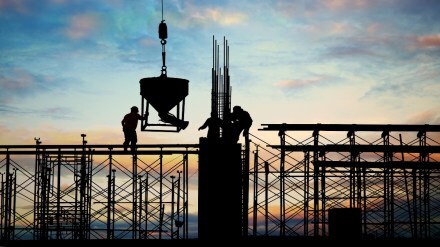With their impending entry into the cables and wires segment, the Adani Group and the Aditya Birla Group (ABG) are strengthening their presence in the building and construction sector, where both already hold leading positions in the cement business. According to analysts, this move will allow both conglomerates to leverage their existing distribution networks and supply chain efficiencies to gain a larger share of the construction materials market.
For ABG, the foray into cables and wires complements its broader building solutions business, which includes cement, adhesives, waterproofing solutions, and paints. Adani, on the other hand, is expected to integrate the new venture with its real estate, power, and infrastructure businesses, creating a seamless supply chain for its projects.According to analysts, both groups see this as an opportunity to expand their market reach and capitalise on existing customer relationships.
“Both have an extensive distribution network through their cement business, which can be leveraged to push cables and wires,” said an analyst from a leading brokerage firm. Jefferies, in a report, noted that ABG’s expansion is a strategic diversification aimed at capturing a larger share of customer spending while utilising synergies in branding, distribution, and customer base.JP Morgan also highlighted that ABG’s building solutions business, with over 2,500 retail outlets across
the country, provides a natural adjacency to the cables and wires segment.
UltraTech Cement already markets a range of construction-related products, including dry mix, mortars, industrial grouts, and
adhesives. The group’s entry into cables and wires ensures a more comprehensive offering to the construction sector, strengthening its control over a larger portion of the value chain.
Both the groups did not respond to FE’s queries on the subject. However, UltraTech has said in a statement that it has earmarked a capex of Rs 1,800 crore over the next two years for a manufacturing facility in Bharuch, Gujarat.
Meanwhile, Adani Enterprises announced a venture under Praneetha Ecocables (PEL), a joint venture between its subsidiary Kutch Copper (KCL) and Praneetha Ventures. However, it did not disclose its capex plans.
People familiar with the developments said that Adani’s manufacturing unit may take three to four years to become operational. Given Adani’s strong presence in energy, infrastructure, and real estate, the cables and wires business could create backward integration opportunities, allowing it to supply key materials for its own projects while also competing in the broader market.
According to Jefferies research, the Indian cables and wires industry is currently valued at
approximately Rs 80,000 crore, with around 30% of the market still unorganised. The industry is
projected to grow at a compound annual growth rate (CAGR) of 12%-13%, reaching Rs 1.3 lakh crore by
FY29. UltraTech anticipates a 13% CAGR over the next five years, driven by factors such as e-mobility,
renewable energy, railway modernisation, metro expansion, urbanisation, and data centre investments.
The relatively high capex commitment by ABG into cables and wires signals an aggressive play in the
segment, similar to its disruptive entry into the paints business under Grasim. Analysts from JP Morgan
noted that UltraTech’s investment could challenge incumbents such as Polycab India, KEI Industries,
Finolex Cables, RR Kabel, and Havells. This was reflected in the market’s response, as these companies
saw a combined market cap erosion of over Rs 23,000 crore in the past month.
Despite this, existing players are doubling down on expansion and innovation. Companies like Polycab
and KEI Industries are ramping up capacity, diversifying product portfolios, expanding export markets,
and enhancing brand positioning to defend their market share against the looming challenge from Adani
and ABG.
